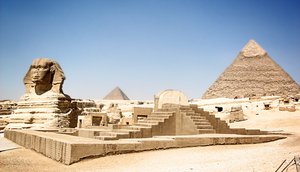- published: 03 Mar 2017
- views: 99
-
remove the playlistQ'eqchi' People
- remove the playlistQ'eqchi' People
- published: 26 Apr 2017
- views: 133
- published: 23 Jan 2017
- views: 0
- published: 27 Oct 2016
- views: 0
- published: 22 Oct 2016
- views: 0

Q'eqchi' people
Q'eqchi' (/qʼeqt͡ʃiʔ/) (K'ekchi' in the former orthography, or simply Kekchi in many English-language contexts, such as in Belize) are one of the Maya peoples in Guatemala and Belize, whose indigenous language is also called Q'eqchi'.
Before the beginning of the Spanish conquest of Guatemala in the 1520s, Q'eqchi' settlements were concentrated in what are now the departments of Alta Verapaz and Baja Verapaz. Over the course of the succeeding centuries a series of land displacements, resettlements, persecutions and migrations resulted in a wider dispersal of Q'eqchi' communities into other regions of Guatemala (Izabal, Petén, El Quiché), southern Belize (Toledo District), and smaller numbers in southern Mexico (Chiapas, Campeche). While most notably present in northern Alta Verapaz and southern Petén, contemporary Q'eqchi' language-speakers are the most widely spread geographically of all Maya peoples in Guatemala.
Notes
References
This article is licensed under the Creative Commons Attribution-ShareAlike 3.0 Unported License, which means that you can copy and modify it as long as the entire work (including additions) remains under this license.
- Loading...

-
 6:03
6:03Kekchi Bible Institute Overview
Kekchi Bible Institute Overview -
 2:01
2:01Indigenous Anti-Mining Activist in Guatemala Wins Award
Indigenous Anti-Mining Activist in Guatemala Wins AwardIndigenous Anti-Mining Activist in Guatemala Wins Award
Like many other land protectors in Latin America, Rodrigo Tot and his community have paid a price in their efforts to defend the lands of the Q'eqchi people. Five centuries after resisting Spanish colonizers, they continue to resist the Guatamalan government and multinationals which want to invade their ancestral lands. https://videosenglish.telesurtv.net/video/656491/indigenous-anti-mining-activist-in-guatemala-wins-award/ -
 2:37
2:37Listen to Rio Dulce, Guatemala Radio/TV Program by Patricia L. Lawrence, narrated by J. D. Streeter
Listen to Rio Dulce, Guatemala Radio/TV Program by Patricia L. Lawrence, narrated by J. D. StreeterListen to Rio Dulce, Guatemala Radio/TV Program by Patricia L. Lawrence, narrated by J. D. Streeter
Get your free audio book: http://eonl.us/c/b002v8lbkm In the first days of April 2004, the Mayan Q'eqchi people living in and around the Rio Dulce River celebrated the ending of their 360-day agrarian calendar. The Ak' Tenamit Association Campus and cultural center hosted the event. The Mayan Deer dance was performed for the first time in decades. -
 2:10
2:10Audiobook: Enclosed: Conservation, Cattle, and Commerce Among the Q'eqchi' Maya Lowlanders
Audiobook: Enclosed: Conservation, Cattle, and Commerce Among the Q'eqchi' Maya LowlandersAudiobook: Enclosed: Conservation, Cattle, and Commerce Among the Q'eqchi' Maya Lowlanders
Get your free audiobook or ebook: http://appgame.space/mabk/30/en/B010TYQGHM/book This impassioned and rigorous analysis of the territorial plight of the Q'eqchi Maya of Guatemala highlights an urgent problem for indigenous communities around the world repeated displacement from their lands. Liza Grandia uses the tools of ethnography, history, cartography, and ecology to explore the recurring enclosures of Guatemala's second largest indigenous group, who number a million strong. Having lost most of their highland territory to foreign coffee planters at the end of the 19th century, Q'eqchi' people began migrating into the lowland forests of northern Guatemala and southern Belize. Then, pushed deeper into the frontier by cattle ranchers, lowland Q'eqchi' found themselves in conflict with biodiversity conservationists who established protected areas across this region during the 1990s.the lowland, maize-growing Q'eqchi' of the 21st century face even more problems as they are swept into global markets through the Dominican Republic-central America Free Trade Agreement (dr-cafta) and the Puebla to Panama Plan (ppp). The waves of dispossession imposed upon them, driven by encroaching coffee plantations, cattle ranches, and protected areas, have unsettled these agrarian people. Enclosed describes how they have faced and survived their challenges and, in doing so, helps to explain what is happening in other contemporary enclosures of public "common" space. -
 1:56
1:56Audiobook: Enclosed: Conservation, Cattle, and Commerce Among the Q'eqchi' Maya Lowlanders
Audiobook: Enclosed: Conservation, Cattle, and Commerce Among the Q'eqchi' Maya LowlandersAudiobook: Enclosed: Conservation, Cattle, and Commerce Among the Q'eqchi' Maya Lowlanders
Get your free audiobook or ebook: http://yazz.space/mabk/30/en/B010TYQGHM/book This impassioned and rigorous analysis of the territorial plight of the Q'eqchi Maya of Guatemala highlights an urgent problem for indigenous communities around the world repeated displacement from their lands. Liza Grandia uses the tools of ethnography, history, cartography, and ecology to explore the recurring enclosures of Guatemala's second largest indigenous group, who number a million strong. Having lost most of their highland territory to foreign coffee planters at the end of the 19th century, Q'eqchi' people began migrating into the lowland forests of northern Guatemala and southern Belize. Then, pushed deeper into the frontier by cattle ranchers, lowland Q'eqchi' found themselves in conflict with biodiversity conservationists who established protected areas across this region during the 1990s.the lowland, maize-growing Q'eqchi' of the 21st century face even more problems as they are swept into global markets through the Dominican Republic-central America Free Trade Agreement (dr-cafta) and the Puebla to Panama Plan (ppp). The waves of dispossession imposed upon them, driven by encroaching coffee plantations, cattle ranches, and protected areas, have unsettled these agrarian people. Enclosed describes how they have faced and survived their challenges and, in doing so, helps to explain what is happening in other contemporary enclosures of public "common" space.
-

Kekchi Bible Institute Overview
This is an overview of Jimmy and Shelley Dinsmore's ministry among the Kekchi (Q'eqchi') people in Northern Guatemala. More information at JimandShelley.com. Online giving to invest in this ministry at http://cmcmissions.org/donate or paypal kekchijimmy@gmail.com
published: 03 Mar 2017 -

Indigenous Anti-Mining Activist in Guatemala Wins Award
Like many other land protectors in Latin America, Rodrigo Tot and his community have paid a price in their efforts to defend the lands of the Q'eqchi people. Five centuries after resisting Spanish colonizers, they continue to resist the Guatamalan government and multinationals which want to invade their ancestral lands. https://videosenglish.telesurtv.net/video/656491/indigenous-anti-mining-activist-in-guatemala-wins-award/
published: 26 Apr 2017 -

Listen to Rio Dulce, Guatemala Radio/TV Program by Patricia L. Lawrence, narrated by J. D. Streeter
Get your free audio book: http://eonl.us/c/b002v8lbkm In the first days of April 2004, the Mayan Q'eqchi people living in and around the Rio Dulce River celebrated the ending of their 360-day agrarian calendar. The Ak' Tenamit Association Campus and cultural center hosted the event. The Mayan Deer dance was performed for the first time in decades.
published: 23 Jan 2017 -

Audiobook: Enclosed: Conservation, Cattle, and Commerce Among the Q'eqchi' Maya Lowlanders
Get your free audiobook or ebook: http://appgame.space/mabk/30/en/B010TYQGHM/book This impassioned and rigorous analysis of the territorial plight of the Q'eqchi Maya of Guatemala highlights an urgent problem for indigenous communities around the world repeated displacement from their lands. Liza Grandia uses the tools of ethnography, history, cartography, and ecology to explore the recurring enclosures of Guatemala's second largest indigenous group, who number a million strong. Having lost most of their highland territory to foreign coffee planters at the end of the 19th century, Q'eqchi' people began migrating into the lowland forests of northern Guatemala and southern Belize. Then, pushed deeper into the frontier by cattle ranchers, lowland Q'eqchi' found themselves in conflict with bio...
published: 27 Oct 2016 -

Audiobook: Enclosed: Conservation, Cattle, and Commerce Among the Q'eqchi' Maya Lowlanders
Get your free audiobook or ebook: http://yazz.space/mabk/30/en/B010TYQGHM/book This impassioned and rigorous analysis of the territorial plight of the Q'eqchi Maya of Guatemala highlights an urgent problem for indigenous communities around the world repeated displacement from their lands. Liza Grandia uses the tools of ethnography, history, cartography, and ecology to explore the recurring enclosures of Guatemala's second largest indigenous group, who number a million strong. Having lost most of their highland territory to foreign coffee planters at the end of the 19th century, Q'eqchi' people began migrating into the lowland forests of northern Guatemala and southern Belize. Then, pushed deeper into the frontier by cattle ranchers, lowland Q'eqchi' found themselves in conflict with biodiv...
published: 22 Oct 2016
Kekchi Bible Institute Overview
- Order: Reorder
- Duration: 6:03
- Updated: 03 Mar 2017
- views: 99
Indigenous Anti-Mining Activist in Guatemala Wins Award
- Order: Reorder
- Duration: 2:01
- Updated: 26 Apr 2017
- views: 133
- published: 26 Apr 2017
- views: 133
Listen to Rio Dulce, Guatemala Radio/TV Program by Patricia L. Lawrence, narrated by J. D. Streeter
- Order: Reorder
- Duration: 2:37
- Updated: 23 Jan 2017
- views: 0
- published: 23 Jan 2017
- views: 0
Audiobook: Enclosed: Conservation, Cattle, and Commerce Among the Q'eqchi' Maya Lowlanders
- Order: Reorder
- Duration: 2:10
- Updated: 27 Oct 2016
- views: 0
- published: 27 Oct 2016
- views: 0
Audiobook: Enclosed: Conservation, Cattle, and Commerce Among the Q'eqchi' Maya Lowlanders
- Order: Reorder
- Duration: 1:56
- Updated: 22 Oct 2016
- views: 0
- published: 22 Oct 2016
- views: 0


- Playlist
- Chat

Kekchi Bible Institute Overview
- Report rights infringement
- published: 03 Mar 2017
- views: 99

Indigenous Anti-Mining Activist in Guatemala Wins Award
- Report rights infringement
- published: 26 Apr 2017
- views: 133

Listen to Rio Dulce, Guatemala Radio/TV Program by Patricia L. Lawrence, narrated by J. D. Streeter
- Report rights infringement
- published: 23 Jan 2017
- views: 0

Audiobook: Enclosed: Conservation, Cattle, and Commerce Among the Q'eqchi' Maya Lowlanders
- Report rights infringement
- published: 27 Oct 2016
- views: 0

Audiobook: Enclosed: Conservation, Cattle, and Commerce Among the Q'eqchi' Maya Lowlanders
- Report rights infringement
- published: 22 Oct 2016
- views: 0
North Korea Accuses Trump Of Declaring War
Edit WorldNews.com 25 Sep 2017New Report Reveals Murder of Kim Jong Un's Half-Brother Meant To 'Horrify World'
Edit WorldNews.com 25 Sep 2017Papyrus Reveals How The Great Pyramid Of Giza Was Built
Edit IFL Science 25 Sep 2017Model 'scalped and drained of blood' in murder unprecedented 'outside wartime', reveals LA autopsy
Edit The Independent 25 Sep 2017British Supermarket Allows Customers To Use Their Veins To Buy Groceries
Edit WorldNews.com 25 Sep 2017Vice-Premier Liu honored by NYU
Edit China Daily 26 Sep 2017Spurs Coach Gregg Popovich on Trump: 'Our Country Is an Embarrassment'
Edit Rollingstone 26 Sep 2017Who are Generation Z? We are hard working, creative and independent
Edit BBC News 26 Sep 2017Commentary: I called for Christians to love gay people. Now the Catholic alt-right is taking revenge.
Edit The Salt Lake Tribune 26 Sep 2017Schenectady leaders honor anti-drunk driving advocate
Edit The Daily Gazette 26 Sep 2017Alejandro Villanueva says he's not offended by protests during national anthem
Edit Penn Live 26 Sep 2017Nine killed on Cape roads – rugby star Elstadt in close call
Edit Independent online (SA) 26 Sep 2017Collins Dooms Republican Health Care Repeal After CBO Warns About Insured Losses
Edit WorldNews.com 26 Sep 2017MLK’s daughter: People didn’t like how my father protested either
Edit The Grio 26 Sep 20175 Pointed Responses from Players and Coaches to Trump's Racist Jeremiad Against Black Athletes
Edit Alternet 26 Sep 2017Winter-weary Wellingtonians head to emergency dept in their droves
Edit Stuff 26 Sep 2017Former Buffalo Bills OT Cam Jefferson was proud to see old teammates show 'unity'
Edit Syracuse 26 Sep 2017Latest GOP Obamacare Repeal Would Reduce Insurance Coverage for ‘Millions’
Edit Time Magazine 26 Sep 2017- 1
- 2
- 3
- 4
- 5
- Next page »





























